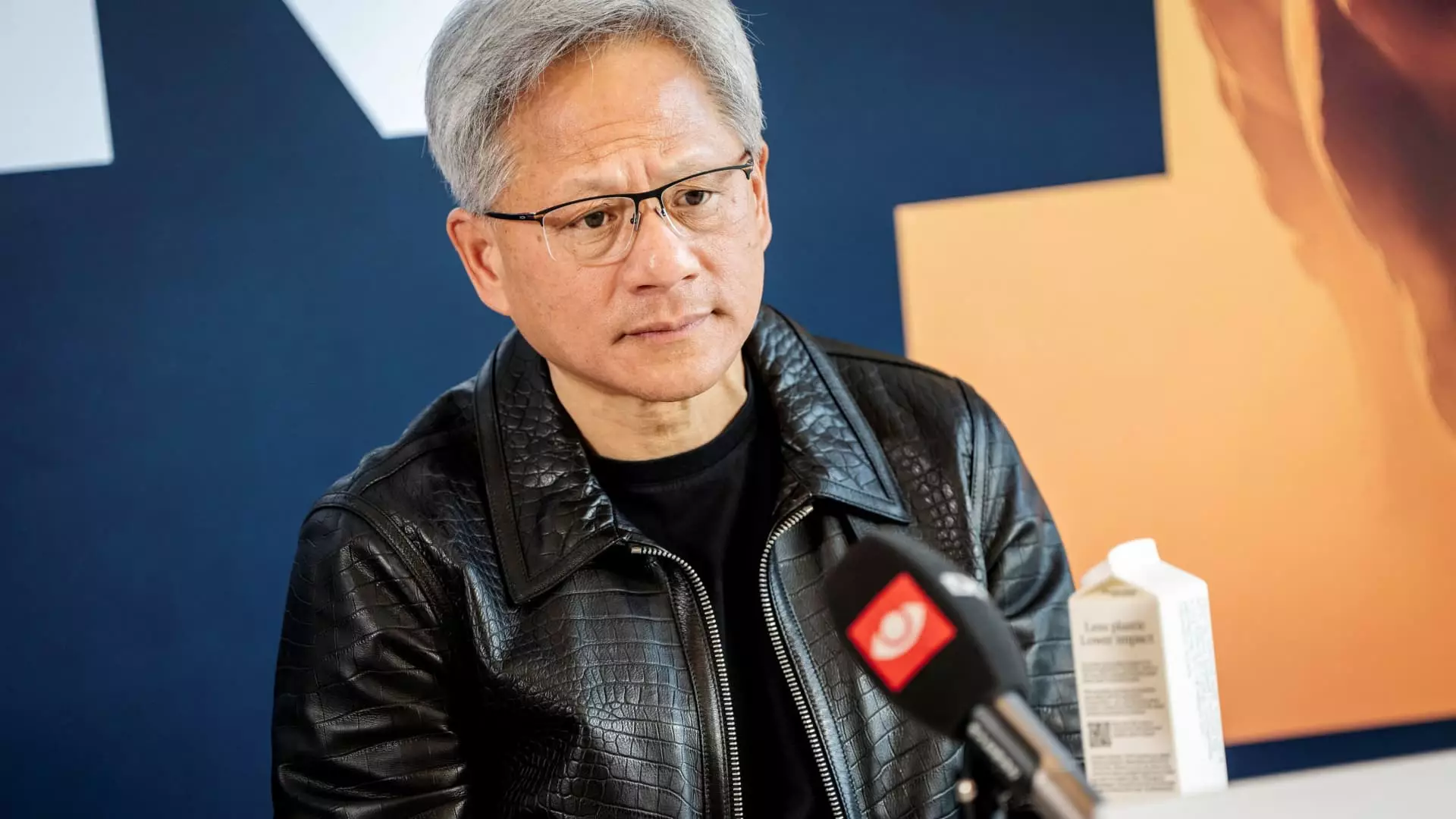In a rapidly evolving technology sector, Nvidia remains a formidable force, commanding an impressive 80% share of the burgeoning artificial intelligence (AI) chip market. This significant market presence is largely attributed to its advanced graphics processing units (GPUs), which are integral for the development and deployment of generative AI applications. As the company gears up to release its quarterly earnings report, investors are keenly interested to see how Nvidia plans to maintain its growth trajectory amidst an influx of competition and a swelling demand for AI technology, which is now entering its third consecutive year of expansion.
Nvidia finds itself in what analysts describe as “uncharted territory,” particularly with a market capitalization estimated at an astounding $3.5 trillion. According to HSBC analyst Frank Lee, the potential for continued growth is palpable, with the absence of any evident slowdown in the company’s performance. Evaluations project an uptick in demand, particularly focusing on upcoming data center expansion and momentum expected in 2026. Lee has expressed a bullish outlook on Nvidia stocks, underlining that the company’s performance in the forthcoming report is pivotal to understanding its sustained success.
Stepping into the spotlight of Nvidia’s projected future growth is its latest chip generation, known as Blackwell. Having just begun deliveries to major tech players like Microsoft, Google, and OpenAI, the emphasis for investors lies not just in Nvidia’s past performance, but also in the anticipated customer demand for these new processors. As CEO Jensen Huang prepares to address shareholders during the earnings announcement, discussions surrounding potential overheating issues reported with Blackwell installations may also emerge. An August report by Nvidia hinted at expectations for “several billion” in sales linked to these chips, indicating their significance in the company’s revenue strategy.
Industry expert Srini Pajjuri from Raymond James has highlighted modest expectations, forecasting shipments of about 100,000 Blackwell GPUs in the fourth quarter. This projection, he believes, is at the lower range of what market analysts have been anticipating. Nevertheless, his strong buy rating on Nvidia stock signals a confidence in the company that persists even amid cautious predictions.
Since Nvidia’s last earnings report, the company’s stock price has surged nearly 19%, exemplifying a remarkable increase of over eightfold since the rollout of ChatGPT in late 2022. This dramatic appreciation in stock value parallels significant sales growth and margin gains, with Nvidia’s forward price-to-earnings ratio climbing to just under 50—a figure that raises eyebrows amid discussions of possible growth moderation. The last reported quarter alone showcased a staggering 122% increase in sales; a figure that, while impressive, marks a deceleration from 262% and 265% growth rates recorded in earlier quarters of the year.
Analysts predict Nvidia’s revenue for the upcoming quarter to hit around $33.12 billion—a nearly 83% year-on-year increase, while earnings per share may reach 75 cents. The predominance of Nvidia’s data center business—accounting for nearly 88% of last quarter’s sales—reflects a shift away from their traditional gaming ventures, where sales are now faltering. The gaming segment, while still viable, is only expected to grow about 6% to approximately $3.03 billion. Conversely, the automotive chip sector, although minor at this stage, is anticipated to see a remarkable 38% growth, contributing roughly $360 million.
Ultimately, the endurance of Nvidia’s data center division serves as a critical indicator of its future performance. As long as this segment continues to flourish, it may overshadow the distress signals coming from legacy markets like traditional gaming. As Jensen Huang reassures investors regarding ongoing demand and operational prospects, the narrative surrounding Nvidia will likely pivot upon the strength and resilience of its data center performance, preserving investor confidence in the tech titan’s ongoing dominance in the AI landscape.


Leave a Reply